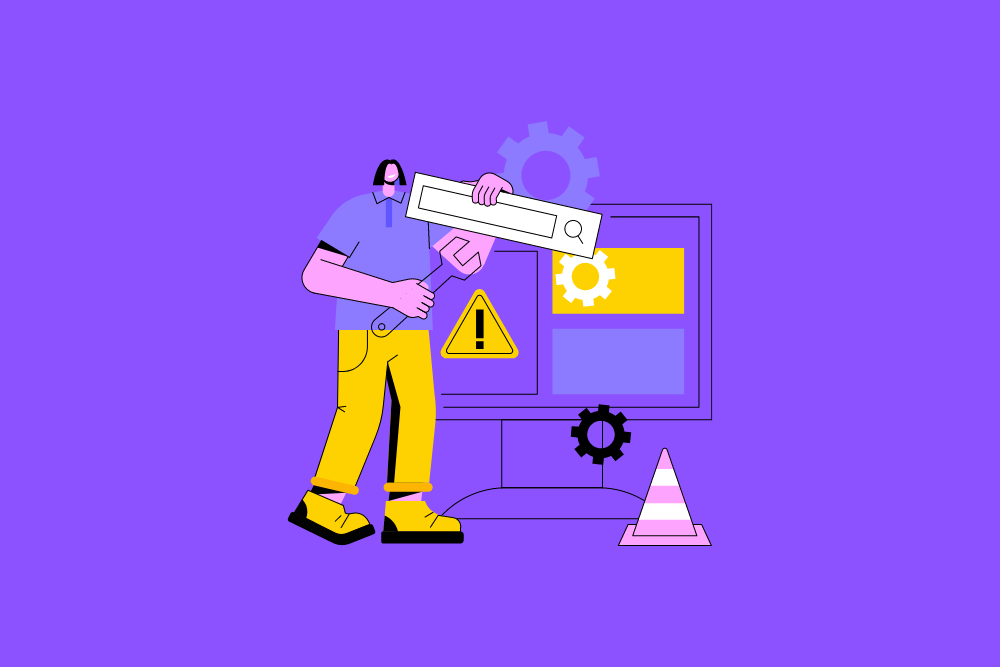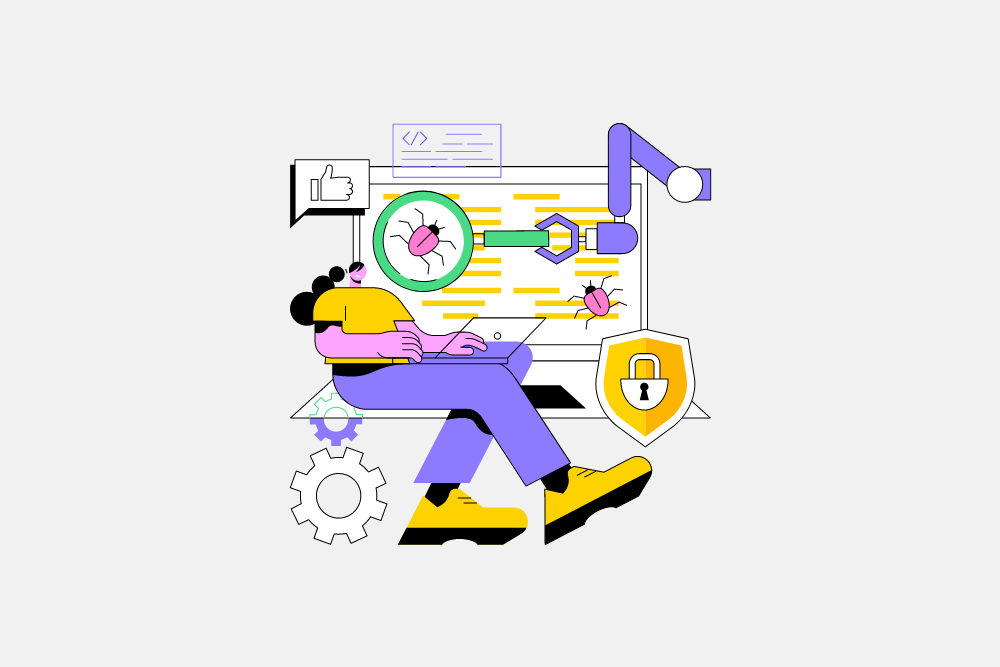Most people think that once the website is set up, they can relax a bit. If you are one of those people, you are in for a surprise. Even when your website is operational, you will still need to take care of its maintenance from time to time. Website development is only half the battle; maintaining the website is just as essential. Regular website maintenance can keep your website running smoothly and efficiently.
One of the primary goals of having a website is to ensure that your users have a pleasant experience visiting you online. Regular website maintenance ensures that you offer the best user experience. Since a website builds the first impression of your business, it is important to ensure that it does the job well.
Let us discuss how to do website maintenance and some dos and don’ts.
What is Website Maintenance?
Website maintenance means checking your website for faults and errors that can mess with the functionality and operations of the website. After a maintenance session, your website will run with updated functionality and improved user experience. Moreover, a website’s security, speed, and reliability are improved with each maintenance session, which helps you improve your ranking on search engines. Website maintenance tasks involve
- Backups of your data
- Fixing broken links
- Updating website content
- Monitoring the website’s performance.
Essentials of Website Maintenance
It will help if you keep several things in mind during website maintenance. Let us look at the list of all these maintenance essentials so that you don’t miss anything.
Scan for bugs and flaws
The security of a website is one of the most crucial parts you should take care of. Without a secure website, you won’t last long on the internet. Therefore, monitoring any spam content that may have gotten past your website’s security is recommended. In addition, a website with weak security can be an easy target of hackers and unauthorised personnel.
Fix the broken links
Another important thing is to look for internal and external links that might be broken. It would be best if you worked on fixing internal and external links to prevent users’ frustration when they try to go through that link.
Security updates
Web development companies keep updating their security features and release security patches to cope with any vulnerabilities that might be a security risk for your websites. These patches help keep your website safe from hackers and cyber attacks.
Software updates
Your website runs on software, such as a content management system, various plugins, a theme, etc. Therefore, it is imperial that you update your website’s software regularly to ensure a smooth and pleasant experience for users. Additionally, updated plugins, themes, and other features provide that your website remains compatible with web browsers and doesn’t relegate to search engine ranking.
Content updates
The content on your website should be regularly updated because if your website doesn’t offer accurate and up to dated content, then what’s the point? Ensure that the content and information you display on the website aren’t outdated because it would make you look unprofessional and backward. Furthermore, it is also crucial to keep publishing new content on your website to get more business. For example, fresh blogs and product descriptions can increase the chances of turning potential customers into actual customers.
Backup and recover
Backups are crucial, and we can not stress that enough. You would be lost in a crisis without backups of your website and its data. Backups ensure you don’t have to start from scratch if you get hacked and lose all your data. Additionally, it allows you to restore your website to its last functioning version, and you can get back to work in no time.
Monitoring and optimising website performance
Analysing your website and its performance is essential in moving up the ladder. It can help you identify where to work to ensure better performance. Furthermore, a better-performing website would also mean a fast and responsive website – and who doesn’t like a fast website? As your website performs better, it also improves web page loading time, image loading time, etc.
Search Engine Optimisation
Without SEO, websites would be lost like a needle in a haystack. Your website’s SEO ensures it is ranked on higher search engine pages and displayed on top results. This way, you get increased traffic and hence more business. However, if you neglect your SEO needs and don’t monitor your website’s ranking, traffic, backlinks, etc., it could bring your website down. Monitoring your SEO needs can ensure that everything is up to date, and if there are any potential threats or flaws, they can be dealt with in time.
Functionality
If your website isn’t functioning correctly, it could cost you a lot of potential customers. Therefore, it is crucial to check the basic functionality of your website, such as sign-up forms, check-out forms, contact forms, etc. Make sure everything is functional so that the user doesn’t have a hard time visiting your website or finding what he is looking for.
Support and maintenance plans
All the services mentioned above may seem like a lot to do. However, with a support and maintenance plan, you can save yourself the time and effort of looking after your website regularly. If you sign up for a support and maintenance plan, you will get all the services and much more at a price well within your budget. All you have to do is look for the right plan. These plans offer 24/7 support, and in case of any accident, you can get the required service in no time.
Cost of website maintenance
There is no fixed website maintenance cost, but it is estimated to be between £35 – £150 per hour. The actual maintenance cost depends on your website’s type and size. Similarly, if your website has a lot of web pages and content that needs regular updates and backup, it will cost you more.
Additionally, you will also need SEO, copywriting, marketing, etc., so you should also consider the cost of all these services when determining the overall website maintenance cost.
Why is website maintenance important?
Just like your body needs frequent maintenance, such as getting a haircut, trimming nails, brushing your teeth, etc., websites also require constant checks and balance to ensure they function correctly. People often overlook the importance of website maintenance because they don’t realise that a website could require regular checkups. Moreover, it is also crucial to your website’s security, ranking on SERPs, and overall performance. A frequently updated website would also provide more accurate content to its users and a pleasant experience that keeps them returning.
How often should I do website maintenance?
Updating your website and backing it up at least once a month could be a reasonable option. However, you should do it frequently if possible. For instance, weekly updates and backups will only ensure improved performance and enhanced protection of your website. Some of the maintenance tasks may be more time-consuming than others, but that is what support and maintenance teams are there for.
Moreover, you can automate many tasks so that they are done regularly, and you don’t have to worry about them. However, many tasks require manual handling and can be too much for one person. For example, managing user accounts can be complicated if you get much traffic on your website. However, you can automate the tasks like plugin updates, theme updates, security updates, and backups if your content management system allows it.
Conclusion
Website maintenance is a fundamental part of your online presence. It ensures you can survive in the competition while staying safe from threats. Additionally, website maintenance takes care of your website’s health and performance. Regular maintenance sessions of your website can benefit you more than you think. The internet keeps evolving, and you must work hard to stay in the game.




